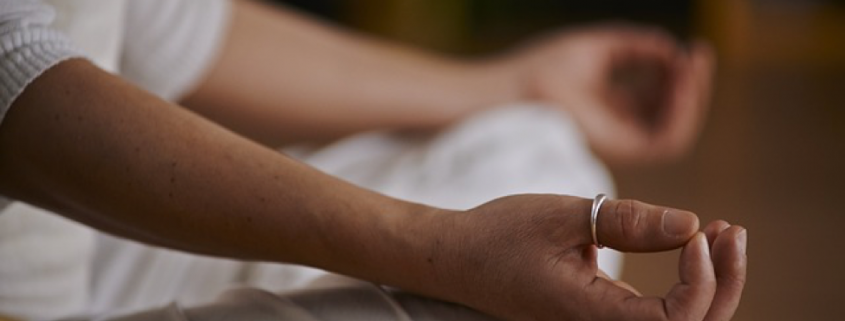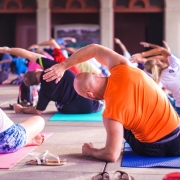In a world bombarded with unrealistic beauty standards and the pressure to attain the “perfect” body, many individuals struggle with body image issues. These negative perceptions of our own bodies can lead to anxiety, depression, and a range of other mental health concerns. But there is hope. Meditation, a practice that has been used for centuries to foster mental and emotional well-being, can be a powerful tool in helping us find peace and self-acceptance.
*Please note that meditation may not be feasible or accessible for some and that is okay. Also, meditation is not the sole answer to body image struggles, however here we will be discussing the benefits that can come from meditation.
Why Meditate?
Meditation is more than just a way to relax or reduce stress; it’s a practice that can transform our relationship with our bodies. By cultivating mindfulness and self-compassion, meditation can help us break free from the grip of negative body image and build a healthier, more positive relationship with ourselves.
Benefits of Meditation for Body Image
- Reduced Stress: Meditation helps lower stress levels, which can contribute to a healthier body image. When we’re less stressed, we’re more likely to make positive choices for our bodies and minds. Whatever that might mean for you!
- Increased Self-Awareness: Through meditation, we become more attuned to our thoughts and feelings about our bodies. This self-awareness allows us to address negative patterns and replace them with more neutral or positive, empowering ones.
- Improved Self-Acceptance: Meditation promotes self-acceptance and self-compassion. This means that we can start to appreciate our bodies for what they are, rather than what they look like.
- Emotional Resilience: With a regular meditation practice, we can learn to adapt and navigate the ups and downs of life, including the challenges related to body image.
Types of Meditation for Body Image
- Mindfulness Meditation: Mindfulness meditation encourages us to be fully present in the moment, to observe our thoughts and feelings without judgment. When it comes to body image, mindfulness can help us become more aware of our negative self-talk, societal pressures, and unrealistic standards. This heightened awareness can be the first step towards healing and self-acceptance.
- Self-Compassion Meditation: Self-compassion meditation is rooted in the teachings of Dr. Kristin Neff. It emphasizes treating yourself with the same kindness and understanding as we would offer to a friend in times of suffering. By practicing self-compassion, we can start to challenge our harsh self-criticism and replace it with self-love and acceptance.
How to Get Started
If you’re new to meditation and want to work on your body image, here are some steps to get started:
- Find a Quiet Space: Choose a peaceful, quiet place where you won’t be disturbed.
- Choose Your Meditation Style: There are various meditation techniques such as guided meditation, movement meditation, visualization, and progressive relaxation. There are lots of apps available such as Calm, Headspace, Healthy Minds, and Insight Timer.
- Set Realistic Goals: Start with just a few minutes a day and gradually increase your meditation time as you become more comfortable with the practice.
- Be Patient and Kind to Yourself: Remember, meditation is a skill that takes time to develop. Don’t judge yourself if your mind wanders, this is completely normal. And don’t give up if it takes a while to see results.
Give it a try
Meditation offers a path to self-acceptance and inner peace. By incorporating mindfulness and self-compassion into your daily routine, you can begin to reshape your relationship with your body. With dedication and patience, meditation can help you break free from the confines of negative body image and embrace a more positive, loving perception of yourself. In the journey to self-acceptance, meditation can be a valuable tool.
Contributed in part by Kim Dunaway, MS, C-IAYT, E-RYT 500









